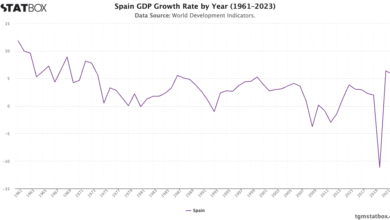Accenture Shares Plunge: First Corporate Casualty of DOGE

Accenture shares plunge, marking a significant downturn for the consulting giant following alarming warnings about impending contract cuts. On Thursday, Accenture’s stock witnessed a nearly 8% decline, attributed to tightening federal spending controls that threaten the company’s revenue streams. The impact of the Trump administration’s Department of Government Efficiency is evident as Accenture becomes a primary casualty among major corporations, facing challenges with its Federal Services division. This division, crucial for Accenture, has already experienced the loss of government contracts, fostering concerns over the broader implications on Accenture’s revenue. With Accenture stock drop repercussions echoed across the sector, investors are watching closely as the consulting firm navigates these turbulent waters of government contract adjustments.
In recent developments, the consulting powerhouse Accenture is navigating a challenging landscape marked by stock performance issues. The slowdown of expenditures from governmental entities directly influences the financial results of firms like Accenture Federal Services, which relies heavily on federal contracts. As fiscal tightening takes hold, we are witnessing a ripple effect across the consulting industry, where declines in client contracts result in significant revenue repercussions for firms. Accenture’s recent challenges can be seen as part of a larger trend affecting consulting firms as they grapple with decreased demand in federal services. As the firm repositions itself amidst these government contract cutbacks, the focus remains on adaptive strategies to mitigate financial impacts and sustain growth.
Accenture Shares Plunge Amidst Government Contract Cuts
In a shocking development, Accenture’s shares plunged nearly 8% on Thursday following the announcement of tighter federal spending controls that are predicted to significantly cut government contracts. This news marked Accenture as one of the first corporate victims of the Trump administration’s emphasis on government efficiency. Notably, the decline in Accenture’s stock not only reflects the immediate threats posed by government policies but also raises concerns about the broader consulting industry, which relies heavily on federal contracts.
CEO Julie Spellman Sweet highlighted that the slowdown in new procurement actions is adversely impacting their sales and revenue streams. With Accenture’s Federal Services accounting for up to 8% of its global revenue, the cutbacks could represent a critical hit. This scenario sets up a precarious position for Accenture and indicates that they may not be the only consulting firm facing turmoil, as similar firms like Booz Allen Hamilton have also recorded stock declines.
Understanding the Impact of Accenture’s Stock Drop
The ramifications of Accenture’s substantial stock drop extend beyond immediate financial losses. The consulting firm faces significant challenges due to contract cancellations, primarily affecting its Federal Services division. Federal contracts are vital components of Accenture’s business model, and losing them could mean a critical diminishing of revenue. With 16% of its revenue in the Americas tied to these services, stakeholders are left analyzing how this rapid decline in government contracts might affect the consulting giant’s overall future performance.
In addition, the shift in government policy that is driving these cuts suggests a broader trend of increasing scrutiny of consulting contracts across the federal landscape. Other consulting firms may soon find themselves in similar positions as contract reviews become standard practice. Consequently, Accenture’s struggle serves as a cautionary tale and may signal a wave of upcoming challenges for the entire consulting sector as it adapts to this contraction in federal spending.
The Long-Term Challenges Facing Accenture and Its Competitors
Accenture, along with its peers, is now confronted with long-term impacts resulting from the recent downturn in government contracts. Industry analysts are speculating on how long the effects of the current administration’s cost-cutting measures will last, especially as federal agencies reevaluate the necessity of various contracts. As pressure mounts to demonstrate accountability and efficiency, consulting firms that rely heavily on these government contracts may need to pivot their business strategies to adapt.
The shared decline witnessed across the consulting sector may prompt companies to diversify their service offerings beyond government contracts. Staying competitive will also require an increased focus on securing private sector clients as a buffer against potential future losses in federal revenue. This strategic shift could redefine how consulting firms like Accenture approach their market positioning, potentially leading to a reallocation of resources and investments.
Accenture Federal Services: Future Uncertainty Looms
With Accenture’s Federal Services division significantly impacted by recent government contract reviews, there is a cloud of uncertainty surrounding its future viability. The Department of Government Efficiency’s guidelines compelling agencies to review contracts with top consulting firms may mean a further slim down in essential services offered by Accenture. This ongoing unpredictability has highlighted the importance of Agility in Accenture’s business structure, as adapting to evolving government priorities will be vital.
Despite Accenture’s assurance about its federal projects’ mission-critical nature, the uncertainty brought on by evolving government priorities demands a re-evaluation of their service commitments. Stakeholders may be forced to reconsider the sustainability of their investments in Accenture if it continues facing reduced federal contracts and revenue impact. The pressing challenge will be how quickly Accenture can adapt to a potentially shrinking pool of government work and pivot towards other revenue opportunities.
Broader Implications of the Consulting Firm Decline
The decline of consulting firms like Accenture highlights not just individual corporate challenges but also signals broader implications for industries reliant on federal contracts. As these firms navigate the complexities of reduced government spending and increased scrutiny, the overall landscape for consulting may shift dramatically. Companies will need to strategize how to effectively communicate their value to both government and private sector clients.
This evolving situation is forcing firms to innovate and diversify their offerings, making it imperative to identify new avenues for revenue generation. The importance of adapting to changing market conditions cannot be overstated as companies like Accenture strive to maintain their competitive edge amidst tightening budgets and evolving government mandates.
Market Reactions to Consulting Firms’ Revenue Impact
The stock market’s reaction to Accenture’s shares plunging has sent ripples through the consulting industry. Investors are closely monitoring how firms respond to the dual pressures of contract cuts and shrinking revenues. Accenture’s almost 15% decline year-to-date poses significant questions about market confidence in consulting firms’ sustainability during these turbulent times.
The situation prompts a re-evaluation of investment strategies among stakeholders. As firms like Accenture combat these challenges, trends in stock performances might lead to investors becoming more selective about where they allocate their funds. Understanding the broader economic landscape and potential recovery scenarios will be vital for long-term investors considering entry into the consulting sector.
Reassessing Value Delivery in Federal Contracts
With the tightening of federal budgets, Accenture and similar firms must consider how they deliver value to their clients. Recent contract reviews initiated by the government suggest a demand for greater transparency and accountability. Accenture must reassess its approach to ensure that they provide measurable outcomes, reinforcing their position as essential partners to government agencies.
In reevaluating their strategies, firms may explore alternative solutions that enhance operational efficiencies and reduce costs for their federal partners. By addressing the fundamental concerns driving the current downturn, consulting firms can work towards rebuilding trust and securing future contracts needed for their stability and growth.
Navigating Future Risks and Opportunities
As Accenture faces a decline in federal contracts, identifying future risks and opportunities will be crucial. Firms must navigate an uncertain landscape created by evolving government policies while also looking for new markets to leverage. Innovating service delivery methods and enhancing client relationships are essential steps in minimizing risks associated with shifting government priorities.
Moreover, it’s imperative for Accenture and other consultancies to capitalize on emerging trends in the market, such as digital transformation initiatives. By aligning their competencies with sectors poised for growth, they stand a better chance of mitigating the impact of current declines while establishing themselves in new areas of the industry.
The Ripple Effect Across the Consulting Sector
Accenture’s challenges with stock price drops and government contract losses can have a broader impact on the consulting sector as a whole. As one of the leading firms in the industry, its struggles may influence client perceptions and investor confidence across the board. This ripple effect could prompt clients to seek more cost-effective solutions, thereby tightening budgets in consulting services industry-wide.
The implications extend to consulting firms of all sizes, as the aftermath of Accenture’s situation may alter competitive dynamics. Companies will need to adapt their strategies to not only retain existing contracts but also seek innovative paths to secure new business in an increasingly skeptical market.
Looking Ahead: Strategies for Recovery and Growth
To recover from the current predicament caused by declining shares and government contract cuts, Accenture and similar companies must develop robust strategies focused on growth. As the economic landscape shifts, prioritizing resilience through diversification of services and markets will be essential. One approach could be to expand beyond government clients, entering new sectors that are experiencing growth.
Moreover, enhancing transparency and accountability in client relations will be crucial to rebuild trust with stakeholders. As they navigate these turbulent waters, consulting firms should also consider leveraging partnerships to increase their service breadth and access new clients, ultimately positioning themselves for recovery and future success.
Frequently Asked Questions
What caused the Accenture shares to plunge nearly 8% recently?
Accenture shares plunged nearly 8% due to warnings of tighter federal spending controls impacting revenues. The consulting firm faced significant challenges as its Federal Services division lost important contracts with the U.S. government, reflecting the effects of government contract cuts.
How does the Accenture stock drop affect its Federal Services division?
The Accenture stock drop is particularly concerning for its Federal Services division, which accounted for about 8% of Accenture’s global revenue. The loss of contracts following federal reviews signifies a direct impact on sales and revenue, as these cuts lead to a reduction in consulting projects.
What are the implications of the consulting firm declines for Accenture’s overall business?
The consulting firm declines, highlighted by Accenture’s share plunge, suggest potential long-term financial ramifications. As the company anticipates ongoing uncertainty linked to government priorities, future revenue from federal contracts may continue to be affected, hindering overall business growth.
What percentage of Accenture’s revenue was generated from federal contracts before the recent cuts?
Before the recent cuts, Accenture’s Federal Services generated approximately 8% of the company’s global revenue and 16% of its revenue in the Americas for FY 2024. The loss of these federal contracts could severely impact future earnings.
What actions have been taken by the U.S. government affecting Accenture’s consulting services?
The U.S. General Services Administration has directed all federal agencies to review contracts with large consulting firms, including Accenture. This review process has led to the termination of contracts deemed non-essential, significantly impacting Accenture’s Federal Services and contributing to the stock drop.
How has Accenture reacted to the changes in government spending and contract reviews?
Accenture’s response to the changes in government spending and contract reviews has been cautious. CEO Julie Spellman Sweet indicated that while the company views its federal work as mission-critical, they expect continued uncertainty as government priorities evolve, which could further impact revenues.
What does the future look like for Accenture shares amidst the current challenges?
The future for Accenture shares seems uncertain amidst ongoing challenges stemming from contract cuts and government spending restrictions. With a significant 22% drop over the past month and a nearly 15% decrease year-to-date, investors will be closely monitoring how Accenture navigates these turbulent times and adapts to changing federal spending landscapes.
| Key Point | Details |
|---|---|
| Accenture’s Share Decline | Shares fell nearly 8% after contract cuts were announced. |
| Impact of Federal Spending Controls | New procurement actions have slowed, negatively affecting sales and revenues. |
| Federal Services Division | Affected by reviews and contract terminations with U.S. government. |
| Revenue Breakdown | Federal services accounted for 8% of global revenue, 16% in the Americas for FY 2024. |
| CEO’s Statement | Julie Spellman Sweet stated ongoing uncertainty is expected as government priorities shift. |
| Other Consulting Firms’ Impact | Booz Allen Hamilton shares also dropped by 7.5%. |
| Overall Performance | Accenture’s shares are down 22% over the last month, nearly 15% year-to-date. |
Summary
Accenture shares plunged as the consulting firm faces significant revenue impacts due to federal contract cuts. The decline in shares, a nearly 8% drop, comes amid tighter federal spending controls affecting various sectors of government procurement. With Accenture’s Federal Services division hit hard by these changes, the outlook for the company remains uncertain as it navigates contract reviews and mission priority shifts. As a result, stakeholders and investors are closely monitoring future developments in this rapidly evolving environment.



